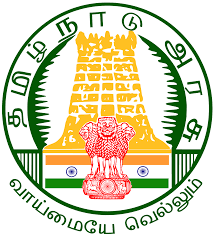Exam Syllabus
1. Medical Subjects:
General Medicine: Understanding of common and complex diseases, diagnostic methods, treatment protocols, and patient management.
Surgery: Knowledge of surgical procedures, techniques, pre-operative and post-operative care, and management of surgical emergencies.
Pediatrics: Pediatric care including growth and development, common childhood illnesses, and child health management.
Obstetrics and Gynecology: Management of pregnancy, childbirth, reproductive health issues, and gynecological disorders.
Orthopedics: Bone and joint disorders, fracture management, and musculoskeletal system diseases.
Anesthesiology: Basics of anesthesia techniques, pain management, and critical care in anesthesia.
Ophthalmology: Eye diseases, diagnostic procedures, and treatment strategies.
ENT (Ear, Nose, and Throat): Diagnosis and management of ENT disorders, including common conditions and their treatments.
2. General Knowledge and Current Affairs:
Recent Developments: Key updates in medical research, healthcare policies, and advancements.
Health Policies: Understanding national health programs, government healthcare schemes, and their implications.
3. Basic Sciences:
Anatomy: Human body structure, organ systems, and their functions.
Physiology: Mechanisms of bodily functions and the interplay between different organ systems.
Biochemistry: Fundamental biochemical processes and their relevance to health and disease.
Microbiology: Pathogens, infectious diseases, microbiological techniques, and their implications in clinical settings.
4. Clinical Skills:
Patient Assessment: Techniques for clinical examination, history taking, and diagnostic skills.
Emergency Medicine: Management of medical emergencies, including critical care and immediate treatment protocols.
5. Ethics and Professionalism:
Medical Ethics: Principles guiding medical practice, doctor-patient relationships, and professional conduct.
Legal Aspects: Medical laws, regulations, and the responsibilities of medical professionals.
6. Research and Evidence-Based Medicine:
Research Methodology: Basics of clinical research, study designs, and data analysis.
Evidence-Based Practice: Application of research findings to clinical decision-making.
ANDHRA PRADESH,
ASSAM,
ARUNACHAL PRADESH,
BIHAR,
GUJRAT,
HARYANA,
HIMACHAL PRADESH,
JAMMU & KASHMIR,
KARNATAKA,
KERALA,
MADHYA PRADESH,
MAHARASHTRA,
MANIPUR,
MEGHALAYA,
MIZORAM,
NAGALAND,
ORISSA,
PUNJAB,
RAJASTHAN,
SIKKIM,
TAMIL NADU,
TRIPURA,
UTTAR PRADESH,
WEST BENGAL,
DELHI,
GOA,
PONDICHERY,
LAKSHDWEEP,
DAMAN & DIU,
DADRA & NAGAR,
CHANDIGARH,
ANDAMAN & NICOBAR,
UTTARANCHAL,
JHARKHAND,
CHATTISGARH,
TELANGANA,
UTTARAKHAND,
Qualification:8TH , 10TH
₹As Per Notification
Last date for
Apply:14-Dec-2025


.png)

